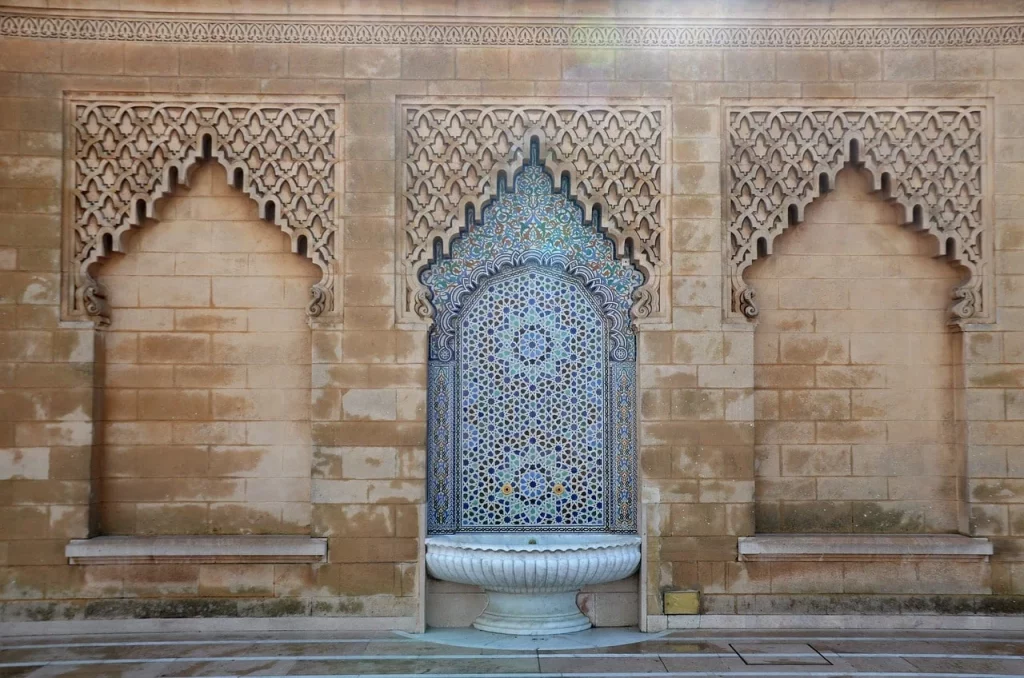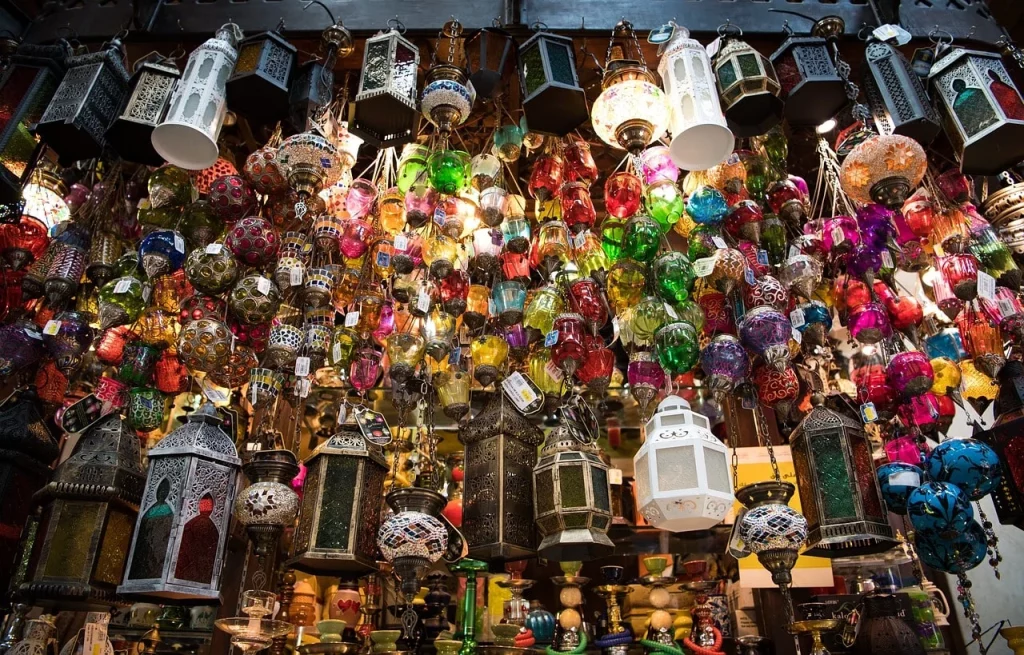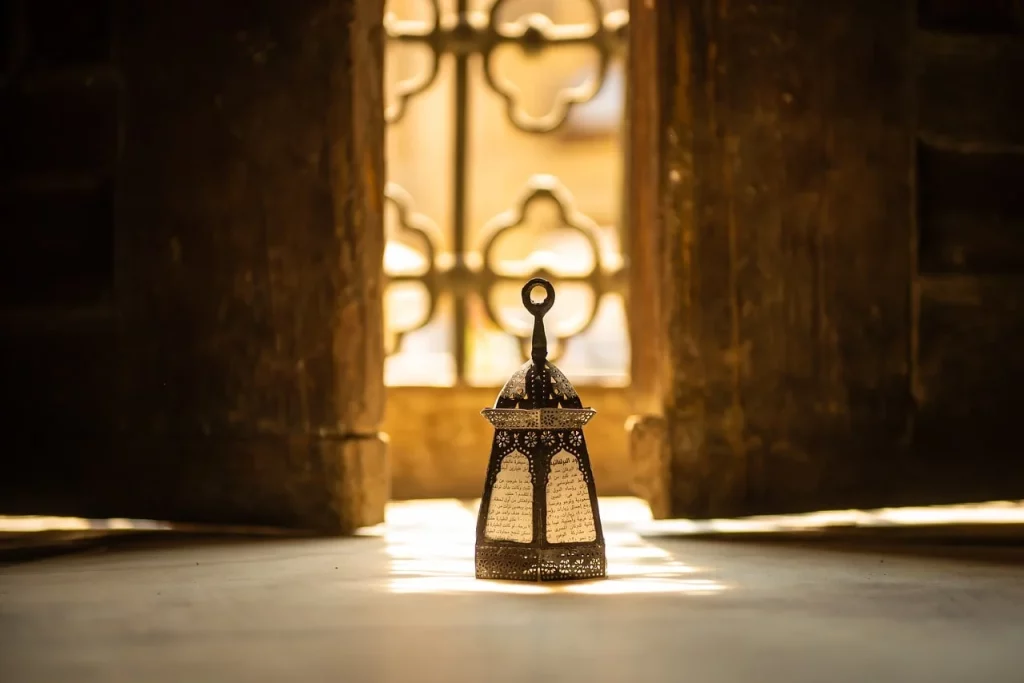Ramadan is a time of year that brings together millions of people from around the globe in a shared experience of fasting, prayer, and reflection. But beyond the fasting, there’s so much more to this holy month.
Did you know that Ramadan shifts every year or that the length of the daily fast can vary greatly depending on where you are in the world? We’re going to explore these fascinating aspects and more. Join me as we uncover the traditions, history, and little-known facts about Ramadan that make it a unique and deeply meaningful period for those who observe it.
Ramadan is the month whose beginning is mercy, whose middle is forgiveness and whose end is freedom from fire.
Prophet Muhammad
Ramadan Facts
Before we dive into the fascinating facts about Ramadan, remember that there’s a quiz waiting for you at the end of this article. Pay close attention to each detail if you want to prove you’re an expert on it.
- The lunar calendar causes it to move through the seasons, making its observance vary between the chill of winter and the heat of summer over a 33-year cycle.
- It’s considered the month in which the first verses of the Quran were revealed to Prophet Muhammad, marking a momentous event in Islamic history.
- In some countries, observing individuals use cannons to signal the end of the daily fast, a tradition that dates back to the Ottoman Empire.
- The longest day can lead to fasting times as long as 22 hours in places near the Arctic Circle during the summer.
- The first country to declare it an official state religion was Mauritania in 1959.
- Many Muslims perform ‘Itikaf, which means staying in a mosque for a certain number of days, devoted to worship and reading the Quran, seeking closer proximity to God.
- Charity, known as Zakat al-Fitr, is a significant part of the month, calculated based on the number of family members, and traditionally involves giving away food staples to those in need.
- In Egypt, a unique lantern known as the Fanous is widely used for decorations, a tradition that started during the Fatimid Caliphate.
- The night of Laylat al-Qadr, also known as the Night of Decree, is believed to be when the Quran’s first verses were revealed, and observing it in worship is considered better than a thousand months of worship.
- A special meal called Suhoor is consumed before dawn, providing the necessary energy and hydration for the day.
- Indonesia, the country with the largest Muslim population, observes it with various unique cultural practices, including the Padusan ritual of cleansing before the month begins.
- Iftar, the meal to break the fast, traditionally starts with the eating of dates and drinking water, following Prophet Muhammad’s custom.
- There’s a special prayer called Taraweeh, performed only during this month, where long portions of the Quran are recited each night.

- In Turkey, people often wake up to the sound of drummers called davulcu roaming the streets to wake people up for Suhoor.
- The last ten days are considered the most spiritual and significant, with many seeking the night of Laylat al-Qadr.
- A practice called Zakat, one of the Five Pillars of Islam, involves giving a fixed portion of one’s wealth to the poor, and its significance is especially emphasized during this month.
- Historically, the Hilal, or crescent moon, was sighted by religious authorities to declare the beginning and end, though now astronomical calculations are also widely used.
- In some regions, it’s customary to exchange green branches or decorate homes with lights, symbolizing the renewal of faith and the community.
- The consumption of water and dates not only breaks the fast but also follows a nutritional strategy that provides quick energy and hydration.
- Many Muslims strive to complete the reading of the entire Quran during the month, often listening to recitations during Taraweeh prayers.
- In the Maldives, people celebrate the end with a festival called Kuda Eid, characterized by communal prayers, feasting, and the exchange of gifts.
- The Sultan Ahmet Mosque in Istanbul, also known as the Blue Mosque, holds one of the largest gatherings for nightly prayers during this period.
- Some Muslim-majority countries implement a shortened workday to accommodate fasting and additional prayers.
- Health professionals sometimes offer tailored dietary advice to help maintain balanced nutrition and hydration levels during the fasting period.
- Physical health benefits, such as improved blood sugar control and weight loss, have been associated with the fasting practice when done correctly.
- The tradition of breaking the fast together, known as Iftar parties, strengthens community bonds and family ties.
- A special type of prayer mat, often more elaborately designed, is used by some individuals exclusively during this period.
- In historical periods, rulers and wealthy individuals would sponsor public banquets to feed the poor, a tradition that continues in various forms.

- A phenomenon known as the Ramadan Cannon can be witnessed in cities like Cairo, where a cannon is fired to signal the end of the day’s fast.
- During the last ten days, some mosques host a spiritual retreat called I’tikaf, where individuals spend time in isolation, engaged in prayer and Quranic study.
- The Eid al-Fitr holiday, marking the end, is celebrated with a specific prayer, festive meals, and the giving of charity to ensure everyone can join the celebrations.
- Unique sweets and dishes are prepared for the occasion, with recipes passed down through generations, such as the Kunafa in the Middle East.
- In countries like Pakistan and India, night markets called ‘Chand Raat Bazaars’ emerge, bustling with people shopping for clothes, jewelry, and gifts for Eid.
- Observing it can lead to significant changes in daily routines, impacting sleeping patterns, meal timing, and social activities.
- Some athletes practicing it have adapted their training and nutritional intake to maintain performance levels during the fasting period.
- Increased charity and community service activities are observed, with many volunteering to help at food banks and shelters.
- Television and radio stations in many Islamic countries air special programming, including religious lectures, recitations, and family-friendly shows.
- Financial markets in the Middle East can experience reduced trading volumes and altered operating hours during this month.

- There is a significant increase in water and electricity consumption towards the evening as families prepare for Iftar, impacting utility services in some regions.
- Environmental impacts, such as reduced air pollution due to decreased daytime traffic, have been noted in some cities during the fasting hours.
- Historical battles and significant events in Islamic history, like the Battle of Badr, occurred during this month, adding to its spiritual significance.
- Many Muslims also take this time to forgive and seek forgiveness, aiming to start fresh with cleared debts and reconciled relationships.
- Special educational programs for children and converts are often held, aiming to teach the practices and values associated with the month.
- It has inspired numerous works of art, literature, and poetry, reflecting its profound impact on cultural and spiritual life.
- Technological solutions, such as apps for prayer times, Quranic study, and fasting tips, have become popular aids.
- Governments in some countries release prisoners and pardon fines as an act of charity and goodwill.
- Unique variations of observing it exist among Muslim communities around the world, reflecting a diverse tapestry of cultural practices.
- The practice of fasting is intended to bring the faithful closer to God and to remind them of the suffering of those less fortunate, fostering a sense of empathy and community spirit.
- At the end of the month, children often receive new clothes and gifts, a tradition that adds a sense of joy and celebration for the younger members of the Muslim community.
- In some regions, traditional street performances and storytelling sessions are organized, reviving cultural heritage and providing entertainment during the evenings.
Ramadan Myths

Now that we’ve explored the facts about Ramadan, let’s dive into the next part of our journey. We’ll separate the myths from the truth to get a clearer understanding.
- Ramadan is only about fasting from food and drink.
While abstaining from food and drink from dawn until sunset is a central aspect, Ramadan is much broader. It’s a time for spiritual reflection, self-improvement, and heightened devotion. Acts of charity and increased prayer are equally emphasized during this holy month. - Everyone must fast during Ramadan.
Not all individuals are expected to fast. Exemptions are granted to those who are ill, pregnant, breastfeeding, menstruating, traveling, or very young or old. It’s acknowledged that health and capability play crucial roles in one’s ability to participate fully. - Fasting during Ramadan is harmful to your health.
For most people, fasting has been found to be safe and can even offer health benefits like improved blood sugar control and heart health. However, it’s carried out with precautions, and individuals are encouraged to break their fast if their health is at risk. - You cannot swallow your saliva during Ramadan fasting.
Swallowing one’s own saliva is perfectly permissible while fasting. The fast pertains to the intentional consumption of food and drink. Naturally occurring processes, like swallowing saliva, do not invalidate the fast. - Muslims fast according to the Gregorian calendar.
The Islamic calendar, which is lunar, determines the observance of Ramadan. The start and end of Ramadan vary each year by approximately 10-12 days earlier than the previous year, according to the Gregorian calendar, due to the lunar cycle’s length.
No products found.
Ramadan Quotes

Let’s delve into the insightful words shared by prominent figures, exploring their perspectives on the essence and significance of Ramadan.
Ramadan is the month whose beginning is mercy, whose middle is forgiveness, and whose end is freedom from fire.
Prophet Muhammad
Prophet Muhammad highlights the spiritual progression and blessings of Ramadan, emphasizing its significance in Islamic faith.
Fasting is, first and foremost, an exercise for identifying and managing adversity in all its forms.
Tariq Ramadan
Tariq Ramadan, a Swiss Muslim academic, philosopher, and writer, delves into the deeper purpose of fasting, portraying it as a means of personal growth and resilience.
Ramadan is about breaking bad habits, not putting them on pause.
Nouman Ali Khan
Nouman Ali Khan, a renowned Muslim speaker and founder of the Bayyinah Institute, encourages a transformative approach to Ramadan, focusing on lasting personal change.
Ramadan Mubarak! May Allah bless you and protect you from all sins. May peace, joy, and hope be filled in your house. Have a blessed Ramadan.
Zakir Naik
Zakir Naik, an Indian Islamic televangelist and preacher, extends a heartfelt prayer for blessings, peace, and joy during the holy month of Ramadan.
In Ramadan, you should eat less and think more.
Tariq Ramadan
Tariq Ramadan again provides wisdom on the essence of Ramadan, urging for a period of reflection and mindfulness over mere abstinence from food.
Ramadan FAQ

Before we test your knowledge, let’s dive into a quick FAQ section to solidify our understanding.
- What does Ramadan mean?
It is a holy month in the Islamic calendar, observed by Muslims worldwide as a period of fasting, prayer, reflection, and community. It commemorates the first revelation of the Quran to Muhammad, according to Islamic belief, marking a time for spiritual growth and closeness to God. - How is Ramadan celebrated?
It is celebrated through Sawm (fasting) from dawn until sunset, extra prayers (especially the Taraweeh prayers held at night), reading the Quran, and engaging in acts of charity. Families and friends often gather to break their fast together at iftar, the evening meal, sharing special dishes and sweets. - Why do Muslims fast during Ramadan?
Fasting during Ramadan is one of the Five Pillars of Islam, essential practices that shape a Muslim’s faith and actions. It’s a way to purify the soul, practice self-discipline, and empathize with the less fortunate. Fasting is seen as an opportunity to earn God’s favor and forgiveness. - What is the significance of the Night of Decree (Laylat al-Qadr)?
The Night of Decree is believed to be the holiest night in Ramadan, commemorating the night the Quran was first revealed to Muhammad. Muslims believe prayers on this night are especially powerful and that it’s a time when God’s mercy and blessings are abundantly bestowed. - How does Ramadan end?
It concludes with the celebration of Eid al-Fitr, a festive day of feasting, giving thanks to God for the strength to complete the fast, and acts of charity. Muslims dress in fine clothes, perform a special communal prayer in the morning, and spend the day visiting friends and family, exchanging gifts, and sharing meals.
No products found.
Ramadan Trivia

Welcome to the Great Ramadan Quiz! Miss all the questions, and be prepared to accidentally fast every day until next Ramadan!
Conclusion
Now that we’ve reached the end of our exploration, it’s clear that Ramadan is about much more than abstaining from food and drink. It’s a period for inner reflection, improving oneself, and strengthening community bonds.
Each Ramadan brings its own challenges and rewards, reminding us of the importance of gratitude and resilience. As we say goodbye to this holy month, let’s strive to maintain the positive changes we’ve made in our lives. Till next time, stay curious. Cheers.
3 Sources Used For This ArticleUncovering the Myths – Hadaanallah
Learn how to wishing happy ramadan – Arabian Tongue


